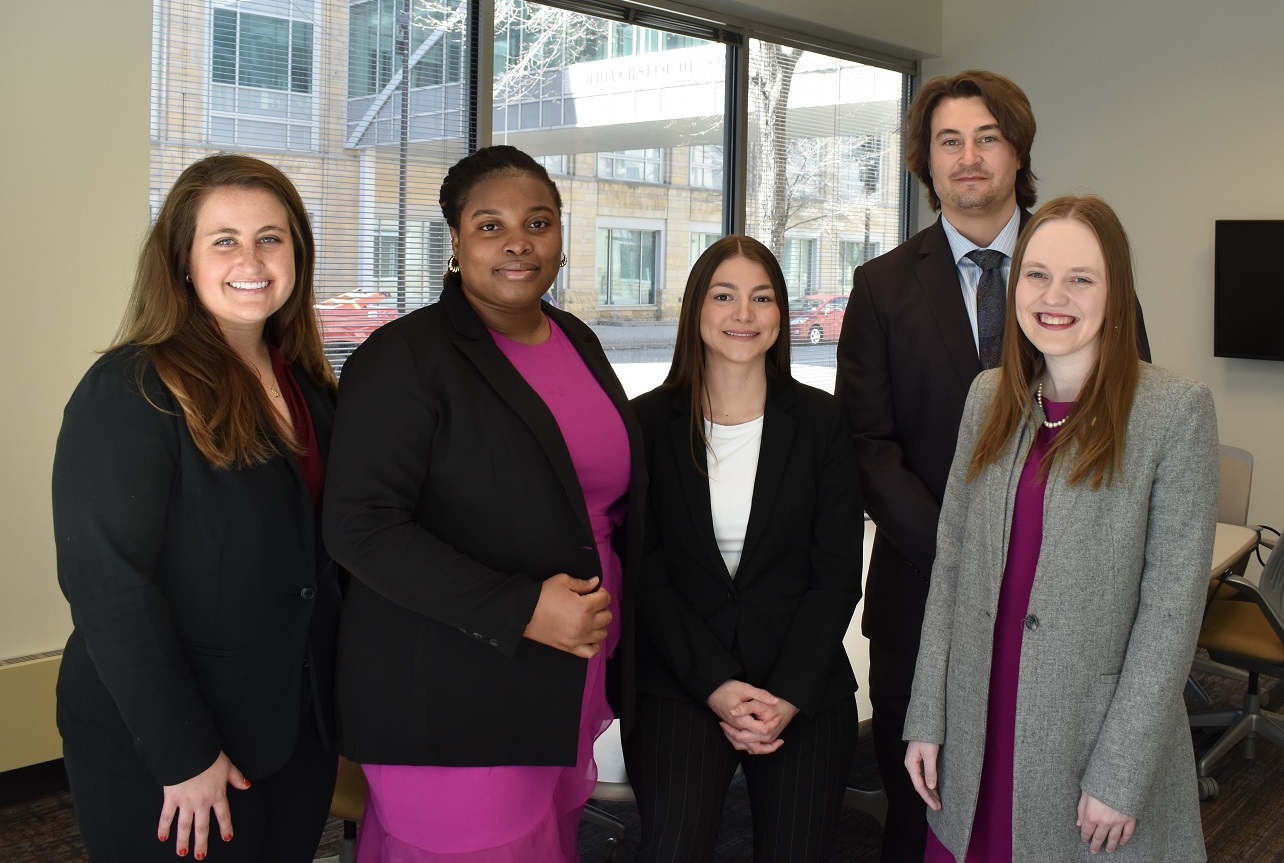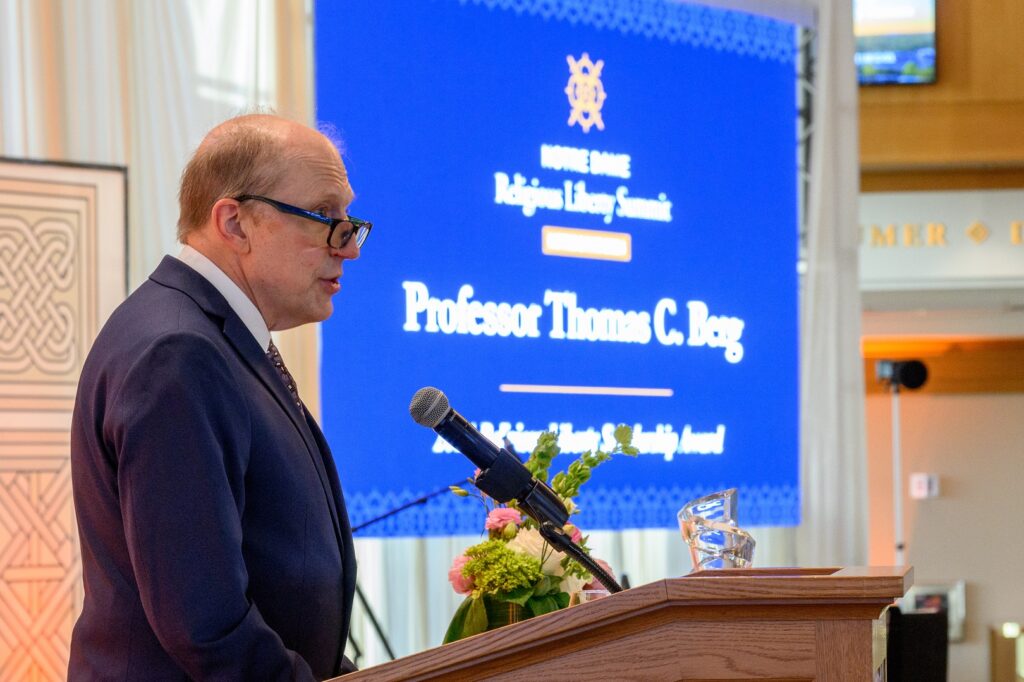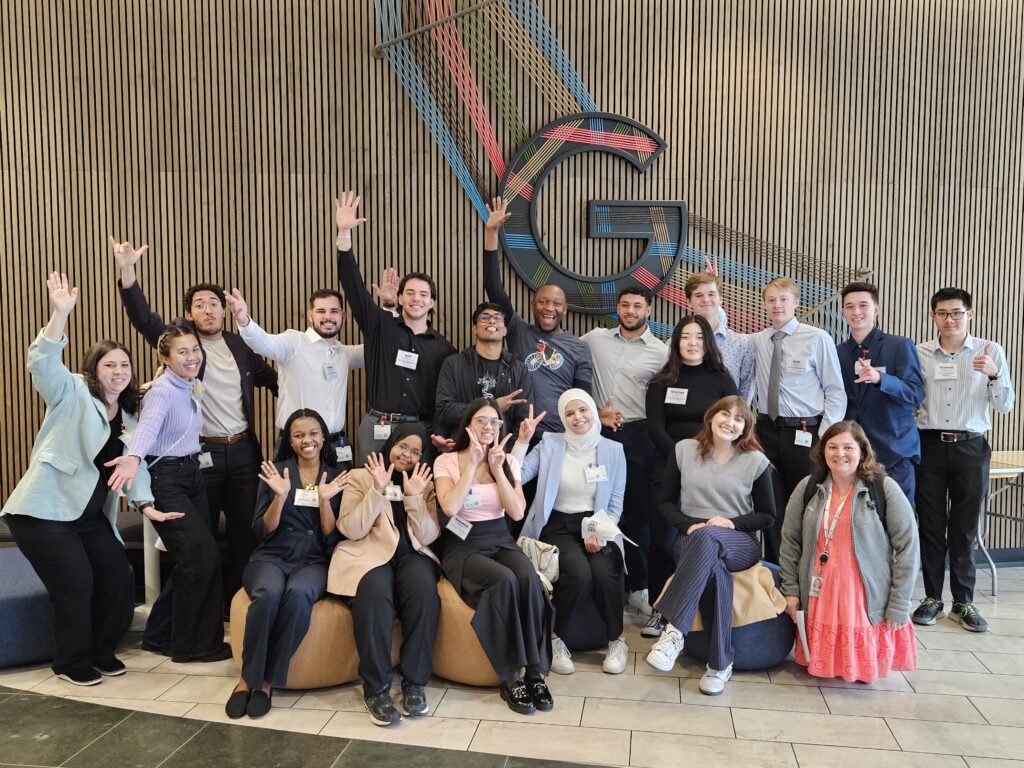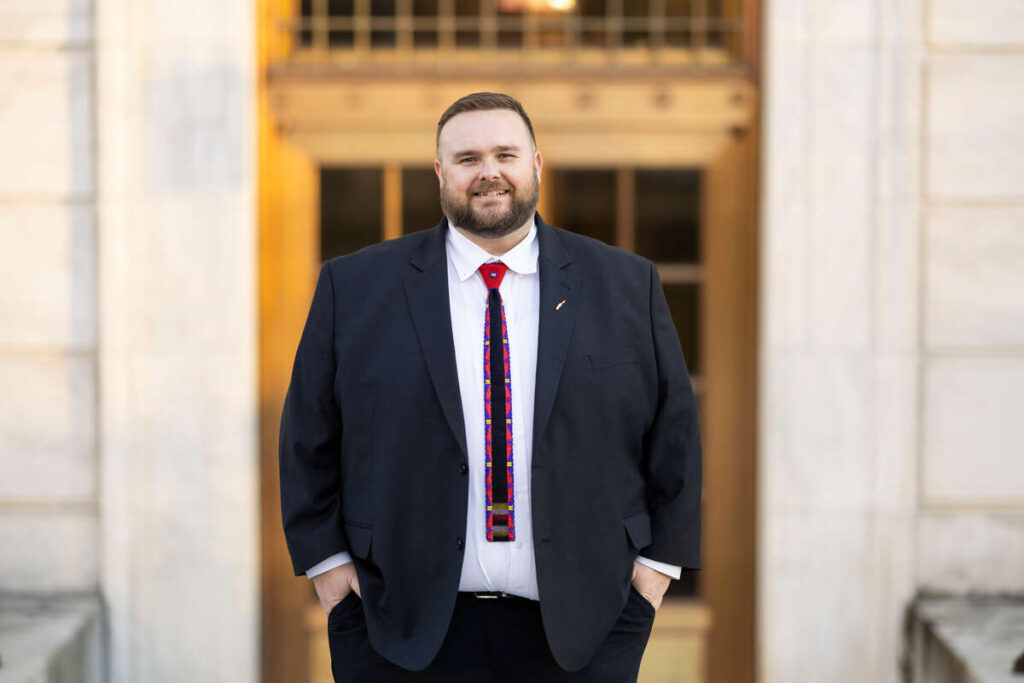After years of struggling to find consistent housing and experiencing food instability, 3L Kai Storrs and 2L Carrie Anderson’s client had compiled a long list of low-level theft convictions. One for stealing $2.43 of potato salad from a grocery store.
“Most of the charges were from 10 years ago and for things that clearly were a result of the client’s financial situation at the time,” Storr said, recalling the first time he read the man’s case. “They were charges that were so trivial I was surprised they were charged.”
The client, who is cognitively impaired, served his sentences for the convictions and went on to make positive changes in his life. When St. Thomas Law students in the Criminal and Juvenile Defense Clinic met him in 2022, he had secured stable housing in a group home, he was working and hadn’t accumulated any new charges in several years. His criminal record, however, remained an obstacle to achieving his goal of living independently.
Law students Stephanie Franco Malave and Ugochi Nwachukwu’s client, a single mother with two young children, also faced challenges when trying to rebuild her life after past drug convictions. She was pursuing a degree as an addiction counselor, but because of the convictions, employers would not hire her.
Both clients were referred to the law school’s Criminal and Juvenile Defense Clinic for help with having their records expunged.
“When potential employers or rental agencies, for example, run background checks and see past criminal history they may immediately reject a candidate, regardless of what the charges were for or how long ago the crime was committed,” said Professor Rachel Moran, who teaches the Criminal and Juvenile Defense Clinic. “A criminal record can create real setbacks for people who are trying to overcome their past and lead better lives. Getting the records expunged is key to putting the past behind them.”
Expungement cases have been part of the Criminal and Juvenile Defense Clinic's caseload since it began in 2018. Law student practitioners, under the supervision of Moran, assist individuals with the application process and represent some of the clients in court.
Last semester the clinic got 10 criminal cases expunged for clients. One of them was Franco Malave and Nwachukwu’s client, who wanted to become a counselor.
Storrs and Anderson’s client, the man who wanted to move out of the group home, also had his convictions expunged.
“It is rare that we have the opportunity to give someone a fresh start following any criminal convictions,” Anderson said. “It felt incredible to know that we were able to help give such a kind man such an opportunity.”
The clinic’s work fills a gap in the justice system by providing legal services to those who may not otherwise receive them, while giving law students an opportunity to build their lawyering skills and gain hands-on experience.
“The clinic taught me so many things,” said 3L Ellen Morrissey, who got three criminal cases expunged last semester for a client who had convictions stemming from when he was homeless. “Practically, I learned all the in-between steps of the intake process, initial meeting, communicating with the prosecutor and constant communication with clients. More importantly, though, the clinic made me more confident in myself and my abilities as an attorney.”
Moran also stresses to her students the importance of listening to clients and understanding what they want to achieve in their case.
"Working in the clinic showed me that client-centeredness is a really essential part of the legal profession," Nwachukwu said.
Though every case doesn’t always end with the desired outcome, students in the clinic can see the impact they are making for their clients.
“I was really happy for our client that the charges would be off their record,” Morrissey said. “It was also heartening to know that the judge found our arguments compelling – a criminal charge from someone's past shouldn't be dictating their future successes.”







